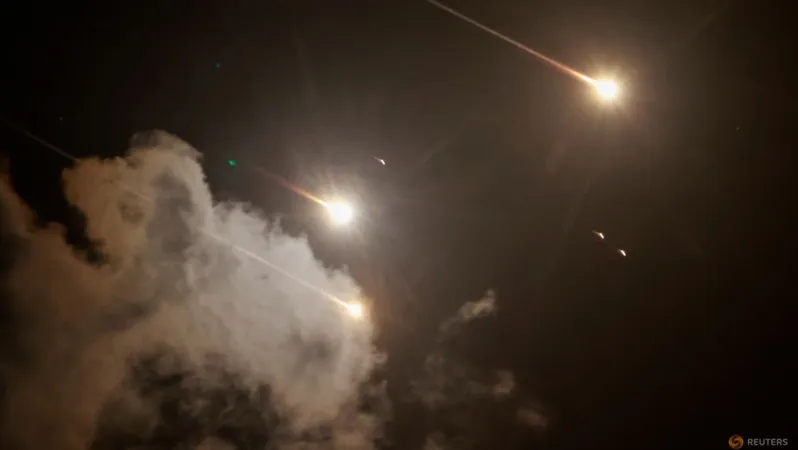
Iran's Missile Assault on Israel: Implications and Global Reactions
2024-10-02
Introduction:
Tensions in the Middle East reached a boiling point on October 1, 2023, when Iran launched a significant missile barrage at Israel, escalating fears of an extensive conflict in the region. This unsettling act of aggression has elicited strong reactions both from Israel and the United States.
The Attack and Its Motivations:
The Iranian Revolutionary Guard has publicly stated that this missile attack was a direct retaliation for the recent killings of key figures in the region, namely Hezbollah leader Hassan Nasrallah and Hamas chief Ismail Haniyeh. This military escalation follows a tumultuous period spurred by the unprecedented assault on Israel by Hamas on October 7, 2023, which propelled Israel into a state of war.
The attack also underscores the ongoing hostility since previous confrontations in April, where Iran had retaliated against an airstrike that targeted their diplomatic mission in Damascus, further straining relations between Iran and Israel.
Israeli Defense Measures:
Amid the missile strikes, Israel's sophisticated air defense systems, particularly the Iron Dome, played a crucial role in intercepting the incoming threats. Military officials reported that the Iron Dome successfully neutralized a significant number of missiles, boasting an impressive interception rate. Additional defense mechanisms, including the Arrow and David's Sling systems, continue to strengthen Israel's capabilities against both short and long-range threats.
The U.S. Navy also engaged, deploying interceptors to protect Israeli interests, indicating the United States' active involvement in the conflict.
Israel's Strong Retaliation Promises:
Following the assault, Israeli Prime Minister Benjamin Netanyahu issued a stern warning, declaring that Iran would face severe consequences for its actions. Defense Minister Yoav Gallant confirmed a decisive military response was forthcoming, emphasizing that any attack on Israel would result in devastating retaliation—as echoed by Israel's UN Ambassador who stated Iran would soon "feel the consequences" of their aggression.
U.S. Support and Potential Consequences:
The United States stood firmly behind Israel, with President Joe Biden expressing unwavering support and discussing possible repercussions during a briefing. Although specific countermeasures against Iran were not detailed, the sentiment of strong retribution was clearly stated. This aligns with Iran's previous assumptions about the U.S. response strategy and indicates a steadily escalating involvement of American forces in Middle Eastern conflicts.
The Future Outlook:
In a cautious yet defiant tone, Iranian officials claimed that their military operations against Israel would cease unless further provoked. They warned that any subsequent aggressions would meet with an even fiercer response, cataloging potential extensive damages to Israeli infrastructure and vowing to target allies of Israel as well.
Conclusion:
As the situation unfolds, the world watches closely, fearing that this latest bout of violence could spiral into a much larger confrontation, drawing in international forces and allies. The heightened military readiness on both sides indicates that this conflict is far from resolution, creating a volatile atmosphere in an already tense region. Stay tuned for updates on this developing story and its implications for global security.



 Brasil (PT)
Brasil (PT)
 Canada (EN)
Canada (EN)
 Chile (ES)
Chile (ES)
 España (ES)
España (ES)
 France (FR)
France (FR)
 Hong Kong (EN)
Hong Kong (EN)
 Italia (IT)
Italia (IT)
 日本 (JA)
日本 (JA)
 Magyarország (HU)
Magyarország (HU)
 Norge (NO)
Norge (NO)
 Polska (PL)
Polska (PL)
 Schweiz (DE)
Schweiz (DE)
 Singapore (EN)
Singapore (EN)
 Sverige (SV)
Sverige (SV)
 Suomi (FI)
Suomi (FI)
 Türkiye (TR)
Türkiye (TR)